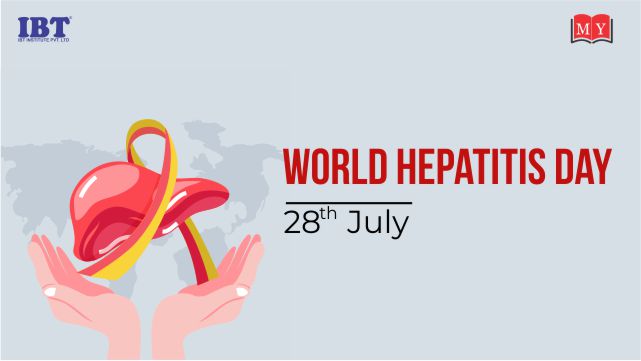World Hepatitis Day: July 28th

World Hepatitis Day: July 28th - It's Time for Action!
World Hepatitis Day, observed annually on July 28th, serves as a crucial global awareness campaign to highlight the significant public health threat posed by viral hepatitis. This day is dedicated to increasing understanding of the disease, promoting prevention, encouraging diagnosis, and advocating for effective treatment, with the ultimate goal of eliminating viral hepatitis as a public health threat by 2030. The date itself commemorates the birthday of Dr. Baruch Samuel Blumberg, the Nobel Prize-winning scientist who discovered the Hepatitis B virus (HBV) and developed its diagnostic test and vaccine.
The Silent Epidemic: Understanding Viral Hepatitis
Hepatitis refers to an inflammation of the liver, most commonly caused by viral infections. There are five main strains of hepatitis viruses – A, B, C, D, and E – each with distinct modes of transmission, clinical courses, and health impacts.
-
Hepatitis A and E: These are primarily transmitted through contaminated food and water and usually cause acute, self-limiting infections.
-
Hepatitis B and C: These are the most common and concerning types, as they can lead to chronic infections, resulting in severe liver diseases like cirrhosis and liver cancer. They are primarily transmitted through blood and other bodily fluids, including mother-to-child transmission (for Hepatitis B), unsafe injections, unsterile medical procedures.
-
Hepatitis D: This infection only occurs in individuals already infected with Hepatitis B.
Despite the availability of effective vaccines for Hepatitis A and B, and highly effective treatments for Hepatitis C, millions worldwide remain unaware of their infection status, leading to delayed diagnosis, continued transmission, and preventable deaths. Globally, hepatitis B and C alone account for approximately 1.3 million deaths and 2.2 million new infections annually.
India's Efforts and Progress
In India, the National Viral Hepatitis Control Program (NVHCP), launched in 2018 under the National Health Mission, is a significant initiative to combat hepatitis. The program aims to eliminate Hepatitis C by 2030 and reduce morbidity and mortality from other types of viral hepatitis, aligning with the Sustainable Development Goal (SDG) target 3.3. Under this program, free diagnostics and drugs are provided for Hepatitis C treatment and Hepatitis B management. The NVHCP has strengthened numerous treatment sites across the country, screened millions of individuals, and provided treatment access to a significant number of patients. The program is also moving towards a paperless data recording system for efficient monitoring and evaluation.
The Path Forward
Achieving a hepatitis-free future requires sustained commitment and collaborative action. This World Hepatitis Day, let's remember that despite the challenges, hepatitis elimination is possible. By working together to dismantle financial, social, and systemic barriers, increasing awareness, improving access to testing and treatment, and promoting vaccination, we can save lives and prevent needless suffering caused by viral hepatitis. It truly is "It's Time for Action."
2 likes |
0 comment
 4.5/5
4.5/5








